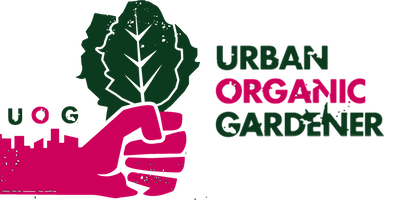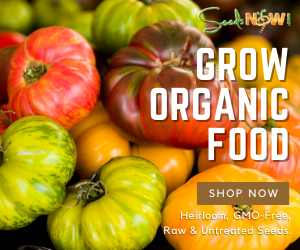
As the cost of fuel continues to rise, more and more people are realizing the importance of supporting local businesses – especially local farms. It’s one of the reasons urban gardening is becoming so popular. Not only is it good karma to keep your money in the local community![]() , but it makes good sense for Mother Earth too.
, but it makes good sense for Mother Earth too.
By buying local, less fuel is used in transportation. Did you know the average distance from farm to fork![]() is 1,500 miles? This great distance accounts for more than 50% of total production costs. As a result, the cost of transporting a single $2 head of lettuce is $1. That huge cost is passed onto consumers – a.k.a. you.
is 1,500 miles? This great distance accounts for more than 50% of total production costs. As a result, the cost of transporting a single $2 head of lettuce is $1. That huge cost is passed onto consumers – a.k.a. you.
The added benefit of supporting local agriculture is that produce can be picked ripe. When produce is picked when fully ripe, it is typically more nutritious. Since it’s estimated that 90% of Americans have at least one nutrient deficiency, it’s so important that we eat the most nutritious foods possible.
 Identifying the need to deliver local, nutritious produce even in dense urban areas where traditional farming is more difficult, Urban Pastoral (UP) set on a mission to make urban gardening possible in Baltimore. Their goal is to set up the first commercial scale hydroponic farm in Baltimore and service the local community with truly local produce.
Identifying the need to deliver local, nutritious produce even in dense urban areas where traditional farming is more difficult, Urban Pastoral (UP) set on a mission to make urban gardening possible in Baltimore. Their goal is to set up the first commercial scale hydroponic farm in Baltimore and service the local community with truly local produce.
Rather than using horizontal growing methods that are common with hydroponics, Urban Pastoral will use a vertical growing system with 10-foot vertical towers to maximize space. They will also use recycled rainwater with Arduino technology![]() to allow them to regulate water and nutrient flows. They’re also exploring the idea of using aquaponics to create a closed-loop system.
to allow them to regulate water and nutrient flows. They’re also exploring the idea of using aquaponics to create a closed-loop system.
The plan is to provide delicious, culinary![]() herbs and greens to Bon Appétit and work with the Baltimore Food Hub to keep produce local. Urban Pastoral has also developed relationships with the Abell Foundation and Humanin. These non-profit organizations have agreed to offer workforce development assistance and real estate with the goal of creating a vocational development program for high school graduates or those incarcerated.
herbs and greens to Bon Appétit and work with the Baltimore Food Hub to keep produce local. Urban Pastoral has also developed relationships with the Abell Foundation and Humanin. These non-profit organizations have agreed to offer workforce development assistance and real estate with the goal of creating a vocational development program for high school graduates or those incarcerated.
Tools of the trade
Urban Pastoral has completed their first step, which was raising the funds to build BoxUP, a modular, 320 square foot shipping container![]() , retrofitted as a growing facility. BoxUP is space efficient, and is versatile enough to operate in any location that has access to water and electrical outputs, like markets, hospitals, schools or unused parking spaces. Using energy efficient
, retrofitted as a growing facility. BoxUP is space efficient, and is versatile enough to operate in any location that has access to water and electrical outputs, like markets, hospitals, schools or unused parking spaces. Using energy efficient![]() LEDs and hydroponic growing towers, one BoxUP can produce more than 700 pounds of fresh produce per month.
LEDs and hydroponic growing towers, one BoxUP can produce more than 700 pounds of fresh produce per month.

The next step is to get the first FarmUP urban gardening location going. FarmUPs are commercial-scale CEA greenhouses integrated into new and existing real estate developments. Using innovative growing technology at scale, a single FarmUP can produce 30-60,000 pounds of fresh produce each month. That’s enough to feed thousands and employ hundreds.

Instead of seeing produce transported 1,500 to your table, Urban Pastoral wants to see urban gardening thrive. They promise their produce will only travel a 10-mile radius, keeping transportation costs to a minimum and nutrient density to a maximum.
Keep an eye on this startup. Urban Pastoral plans to expand outside Baltimore and may bring urban gardening to your city.
Is urban gardening on the rise in your area?
Imagery courtesy of Urban Pastoral




















